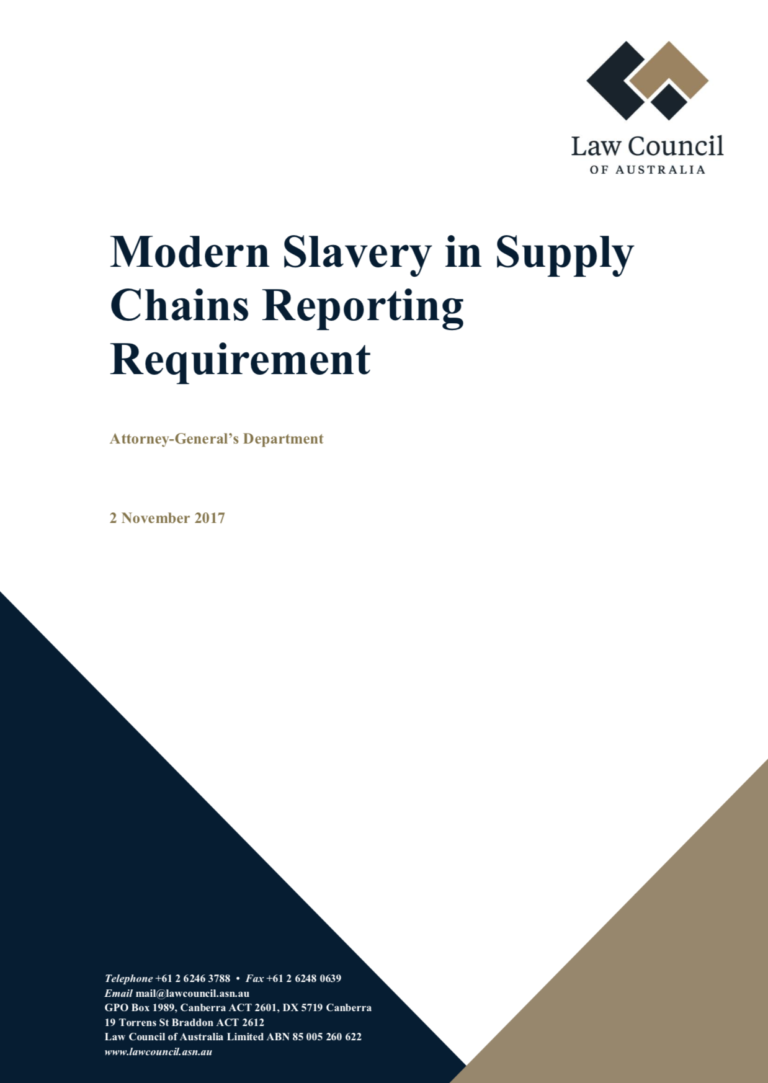The Law Council considers that the Government’s proposal, Attorney- General Department’s “Modern Slavery in Supply Chains Reporting Requirement: Public Consultation Paper and Regulation Impact Statement”, requires two important changes if it is to achieve its objective of identifying and addressing modern slavery in supply chains. First, the revenue threshold for entities required to report should be lowered from $100 million, to an amount no higher than $60 million. This would promote consistency with the UK MSA. Second, the Law Council recommends that penalties for non-compliance with the reporting requirements be introduced. The Law Council considers that without penalties, a mandatory reporting requirement is rendered merely aspirational, as there is no enforcement mechanism, nor any consequence for non-compliance. In any case, the legislation should still include appropriate compliance drivers. For example, the Government could consider making it a term of Government contracts that any reporting entity with whom the Government contracts is required to have submitted all relevant Modern Slavery Statements, and publishing a list of non-compliant entities after the deadline for reporting has elapsed.

